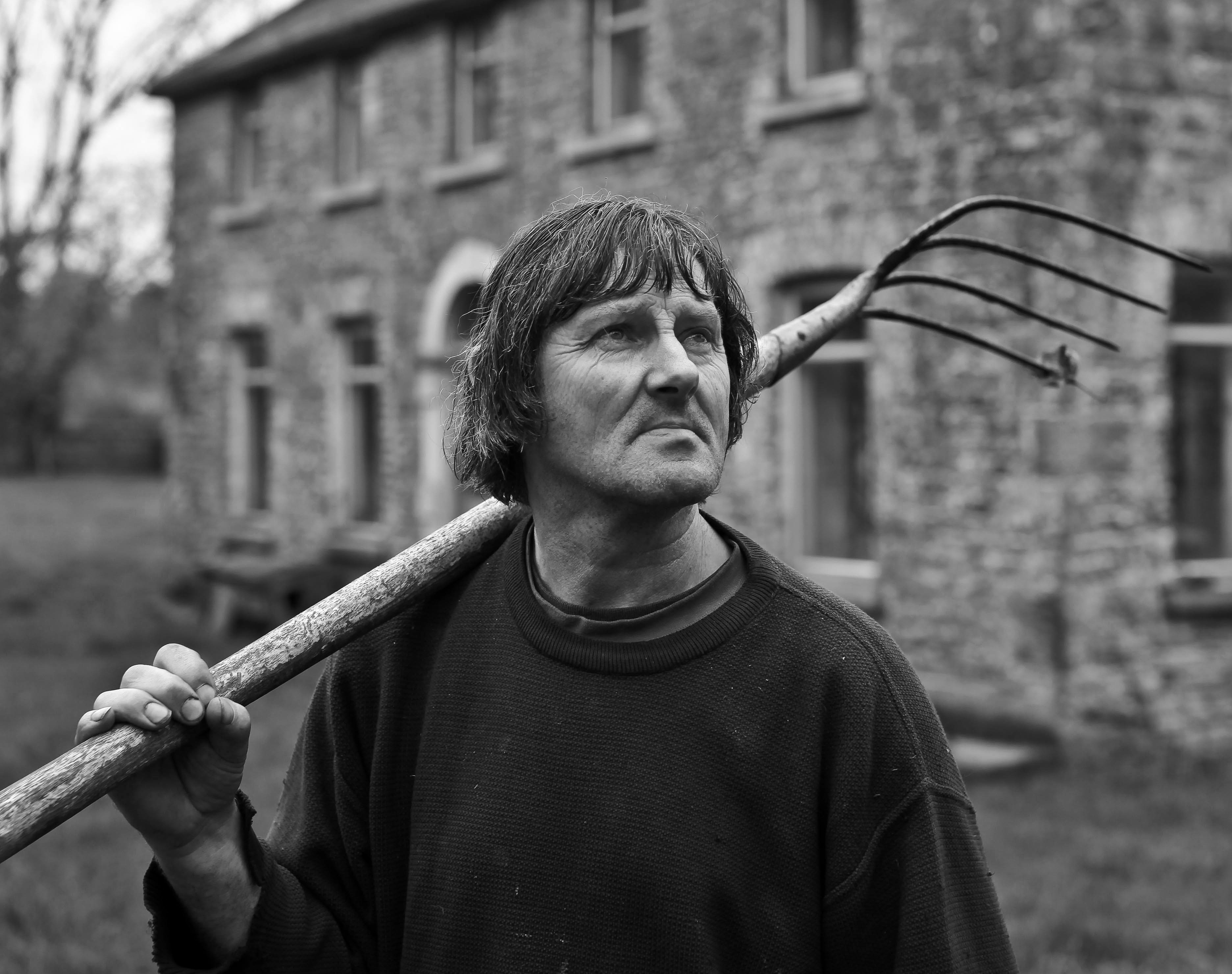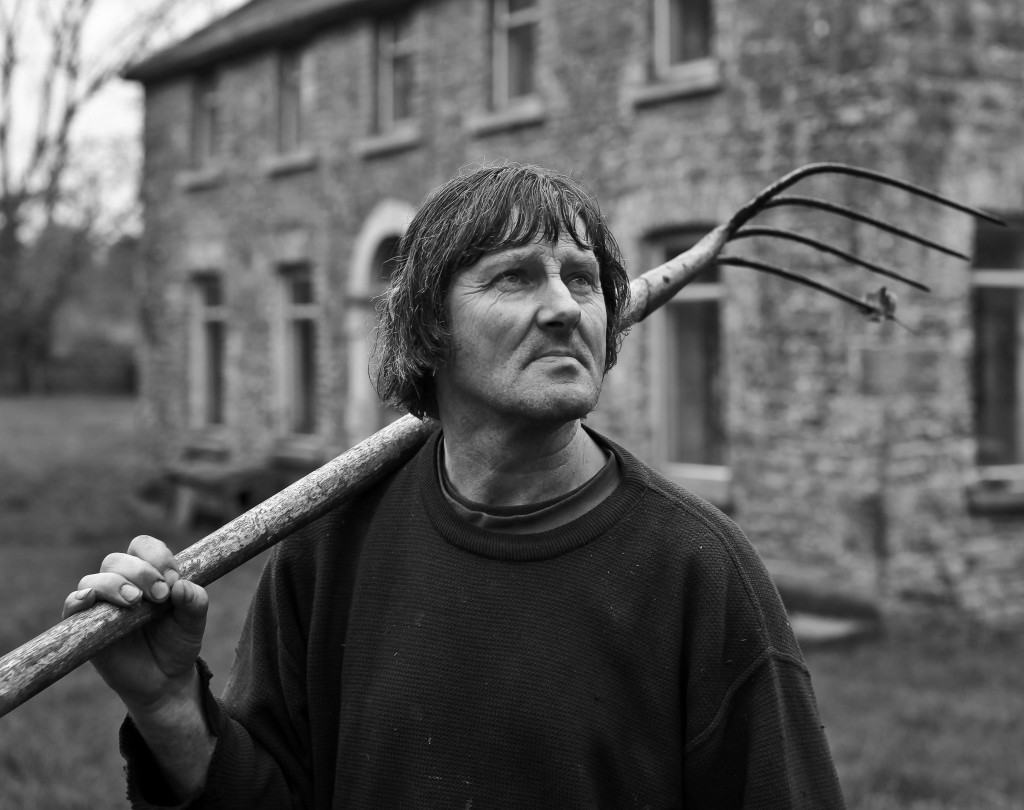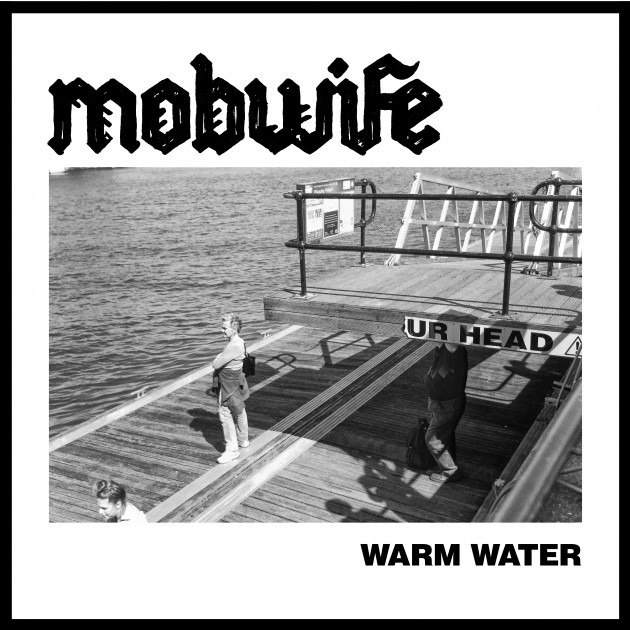The word ‘foreign’ is used a lot in The Lonely Battle of Thomas Reid, Feargal Ward and Tadhg O’Sullivan’s portrait of a Kildare farmer holding out against the Irish state’s property vultures.
Mostly it’s in the context of ‘foreign direct investment’, or FDI, the economic incentive at the heart of Thomas Reid’s problems. The socially isolated farmer’s home is in the sights of electronic manufacturer Intel, who want to expand their local factory facility. As explained by a representative from Ireland’s Industrial Development Agency, the arm of the state responsible for scouting and securing land for multi-nationals, the farm is ‘really the most appropriate’ site for development. But Reid, a Bartleby refusenik with a Richard III haircut, isn’t interested in selling up. The FDI pushes and eventually the case goes all the way to the Supreme Court.
A sense of foreignness is cultivated by the film’s atmosphere, which carefully, lovingly establishes Reid’s farm as a space of living, well-worn authenticity. It opens on a wordless, smooth introduction to the mundane, necessary tasks of land and livestock maintenance: the muck, the hay bails, the feeding of reluctant lambs. Reid has a 72 acre property to take care off, and a 17th-century house that’s been in his family for generations. Here, Ward’s unrushed photography and sound editing shine: the closer Reid gets to the wall on his property lines, the more the chirping and clicking morphs into the crackling of hot engine combustion.
Lonely Battle settles itself so securely in the farm aesthetic that it’s the outside world which feels unnatural. A sharp cut from a wheelbarrow to a supermarket trolley hits like a daze, confronting you with sudden artificial light and a towering mound of red Pringles tubes, unreal and alien.
Lonely Battle is not an ‘issue’ documentary in the prescriptive sense: it’s a straightforward look at a complex man, whose struggle invites larger questions about power and class in contemporary Ireland. It’s a tale of man versus the machine of the state, but Thomas isn’t some sympathetic, lucid eco-warrior. Crouched in a living room teaming with hoarded rubbish, the window light obscured by newspapers, letters and grimy record sleeves, Thomas experiences the world as a force of intrusion and hostility. His defiance of the IDA is motivated by a genuine belief in the sanctity of individual property rights, but there’s also pride and fear there. The loss of the farm would be a desolation. Ward keeps the questioning light and intimate, and Thomas isn’t one for much talking , even when he does his distinct cadence demanding subtitles.
Most of the film’s speech is that of audio voiceovers, snatches of radio news reports and interviews that offer a play-by-play on Reid’s legal fight, and context for who the IDA are and what they can and cannot do. The agency has, in its holster, the power of compulsory purchase, which allows them to essentially seize land under the auspices of national interest, but this has never been used before. Before Reid, everyone just just took the money.
This is also a film about language. The audio narration contrasts the earthy physicality of the Reid property with the soul-killing banality of market-friendly corporate speak, a stream of strategic initiatives. In staged conversations between Reid and IDA visitors, the intruders plead with him to ‘facilitate’ the loss of his own home. Because it is, after all, really the most appropriate.
The opposition between town and country is most visually striking when director and writer stage short court scenes on the pastures and machinery of the farm itself, actors in gowns and wigs performing transcripts. It’s a clever, dramatic workaround of the dullness of courtroom recreation, and an obvious metaphor for the theme of trespass.
Lonely Battle is a beautiful, intriguing illustration of the encroachment of industrial mono-culture on Irish ways of life and the dignity of simply saying no. Conor Smyth






